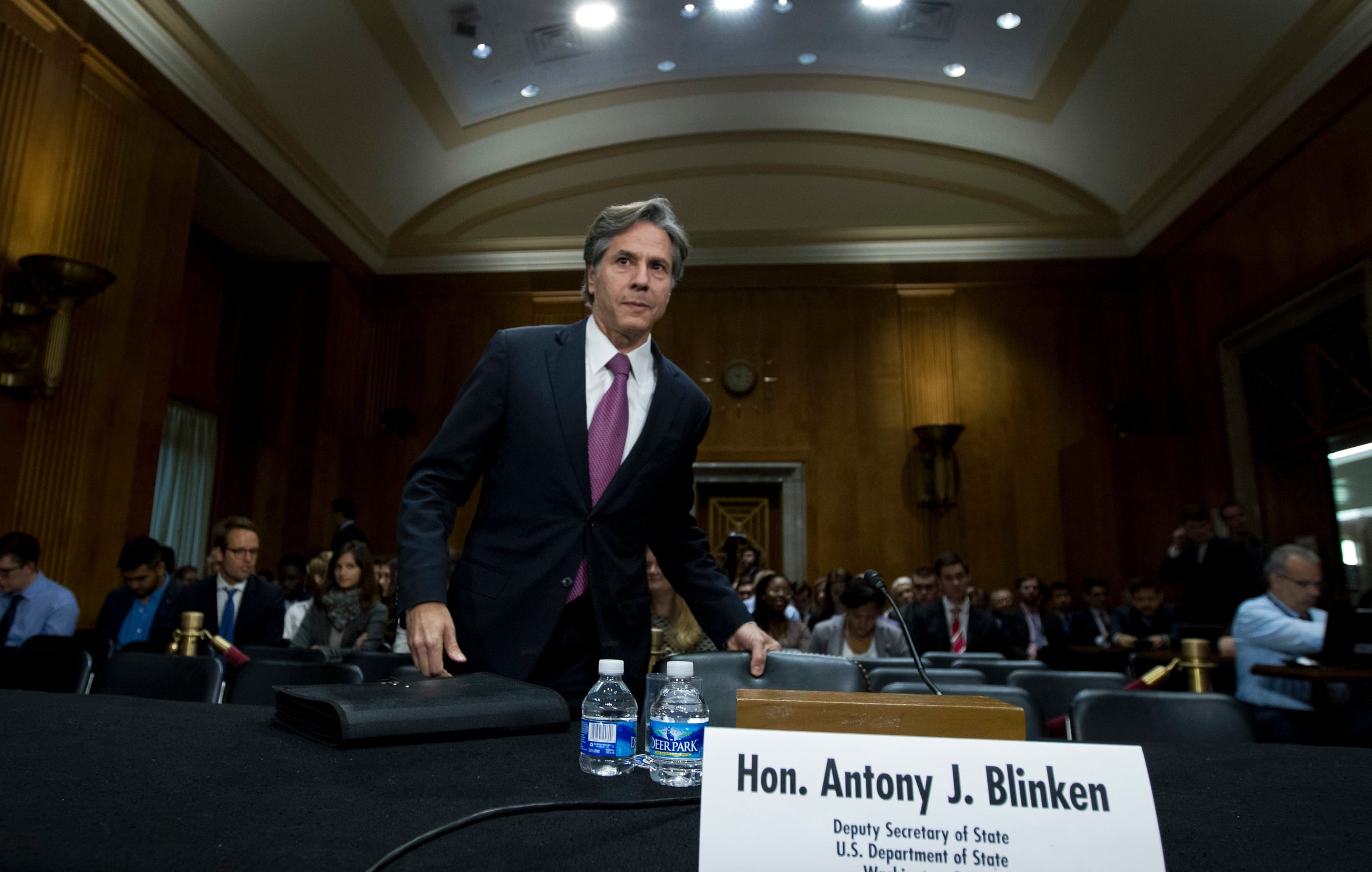WASHINGTON — A senior State Department official sought to assure skeptical lawmakers that Russia is at risk of becoming mired in Syria if the civil war rages on, a prospect that gives the United States an upper hand as it pressures Moscow to end attacks in the besieged city of Aleppo.
As members of the Senate Foreign Relations Committee demanded to know what "Plan B" in Syria is, Deputy Secretary of State Antony Blinken on Thursday described the conflict as a trap that Russia doesn't want to get caught in.
"The leverage is the consequences for Russia of being stuck in a quagmire that is going to have a number of profoundly negative effects," Blinken said. Among them, he said, is that Russia will be seen throughout the world as complicit with Syrian President Bashar Assad as well as with Hezbollah and Iran "in the slaughter of Sunni Muslims," the country's largest religious group.
The committee's Republican chairman, Bob Corker of Tennessee, assailed President Barack Obama and his administration for refusing to take the necessary steps to get humanitarian aid into Syria and to deter Assad's military forces from targeting civilians.
There is an "unwillingness to roll up sleeves and deal with the tough issues that we have to deal with," Corker said. "There is no Plan B. There never has been a Plan B."
Blinken said "we also are actively considering other options" at Obama's direction for ending the civil war and he would share them with Congress once the deliberations are complete.
Since last week, following the collapse of the latest truce attempt brokered by the U.S. and Moscow, Syrian and Russian aircraft have waged a major air campaign in rebel-held areas of Aleppo. The U.N. humanitarian chief said Thursday 320 civilians, including 100 children, have been killed and 765 injured in the violence.
The war, in its sixth year, has killed as many as a half-million people, contributed to Europe's worst refugee crisis since World War II and given the Islamic State group room to grow into a global terror threat.
As Blinken testified, Secretary of State John Kerry said during remarks at the Atlantic Council that the U.S. is "on the verge" of ending Syria talks with Russia. Kerry said the U.S. has no indication of Russia's "seriousness of purpose."

Deputy Secretary of State Anthony Blinken arrives on Capitol Hill in Washington on Sept. 29, 2016, to testify at the Senate Foreign Relations Committee hearing on Syria. Blinken said the failure of a cease-fire in Syria poses serious consequences for Moscow and gives the U.S. leverage.
Photo Credit: Jose Luis Magana/AP
A warning from State Department spokesman John Kirby that the collapse of U.S.-Russian cooperation in Syria could lead to a rise in extremism and potential attacks against Russia drew Moscow's anger. Russian officials struck back by accusing the U.S. of siding with "terrorists" in Syria.
Russian Defense Ministry spokesman Maj. Gen. Igor Konashenkov said Kirby's statement amounted to "the most frank confession by the U.S. side so far that the whole 'opposition' ostensibly fighting a 'civil war' in Syria is a U.S.-controlled international terrorist alliance."
At the committee's hearing, Sen. Bob Menendez, D-N.J., pressed Blinken to explain what the U.S. is doing to convince Russia to change its approach in Syria. "Why are we still engaged in a conversation in which we have a 'partner' that continues to undermine our purposes in Syria?" Menendez asked.
Blinken said Russia "has a profound incentive" to find ways out. Russia escalated its involvement in Syria's civil war because it feared losing its only foothold in the Middle East, he said. But if the war escalates and more weaponry pours into the country, Russia will be left propping up Assad in an increasingly smaller part of Syria. A bad situation, he said, will have gotten worse for Russia.
Russia is "now in a position of having gotten in, it's very, very hard to get out because Assad cannot win," Blinken said. "They can prevent him from losing, but he cannot win," he said.
Sen. Jeanne Shaheen, D-N.H., urged Blinken to settle quickly on new, viable options ending the war.
"Despite the best intentions, our policies in Syria have contributed to where we are today," she said. "The current effort is not working."



